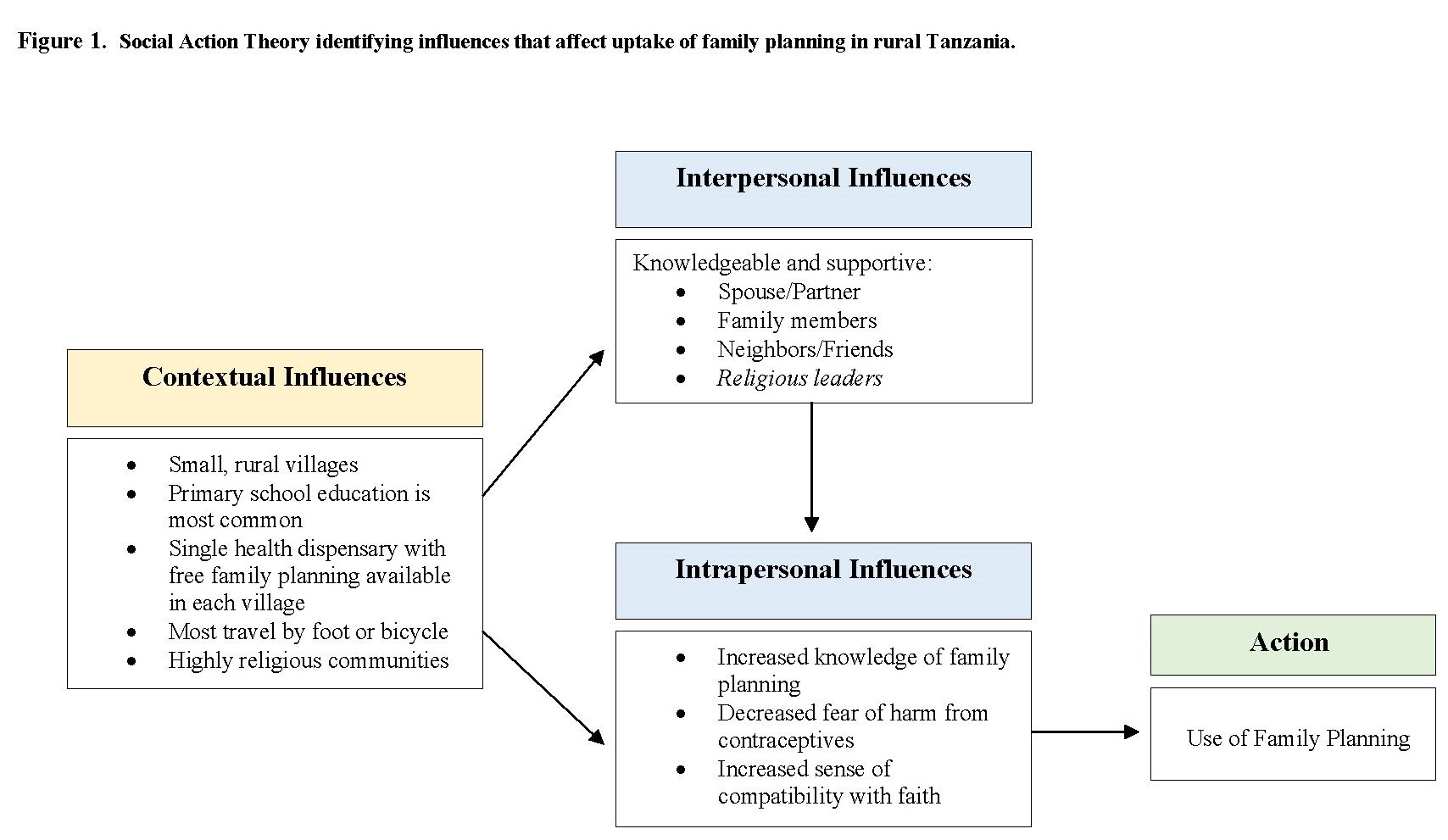Design and Pilot Testing of a Church-Based Intervention to Address Interpersonal and Intrapersonal Barriers to Uptake of Family Planning in Rural Tanzania: A Qualitative Implementation Study

In Tanzania, the overall unmet need for Family Planning (FP) is high, with greater unmet need in poorer, more rural and less educated women.
In a recent paper, Christine Aristide and colleagues analyzed perspectives of rural men and women on family planning and used a theoretical framework to summarize multiple influences contributing to the decision to use FP, design an intervention to address these influences, and pilot-test the effects of the framework. The paper, recently presented at the 12th Tanzanian Medical Students’ Association International Scientific Conference, reports that educating religious leaders about FP affected multiple factors that influence its uptake in Tanzania.
The authors used the Social Action Theory to construct their theoretical framework using data from focus group discussions about social and religious aspects of FP conducted among predominantly Protestant church attenders. Key interpersonal influences included lack of support from husbands/partners, family members, neighbors and church communities. Major intrapersonal factors impeding FP use were lack of medical knowledge and information, misconceptions, and perceived incompatibility of FP and Christian faith.
Guided by this framework, the authors designed and pilot-tested an educational seminar, to discuss social, religious, and health aspects of FP, and they then assessed its acceptability. The educational seminar was then further refined based on focus group data collected after the education as provided.
Post-seminar, church leaders reported renewed intrapersonal perspectives on FP and reported teaching these perspectives to community members. Addressing intrapersonal barriers to FP use for church leaders led them to subsequently address both intrapersonal and interpersonal barriers in their church communities. This occurred primarily by increasing knowledge and support for FP in men, family members, neighbors and church communities.
Additional studies to determine the effectiveness of this educational intervention in decreasing unmet need for FP are under way, in a larger cluster randomized trial supported by the John Templeton Foundation.
Dr. Downs is an Associate Professor of Medicine at Weill Cornell. Christine Aristide is a Global Health research assistant based in Mwanza, Tanzania.
Weill Cornell Medicine Center for Global Health
Center for Global Health
420 East 70th Street, 4th Floor, Suite LH-455
New York, NY 10021
Phone: (646) 962-8140
Fax: (646) 962-0285

